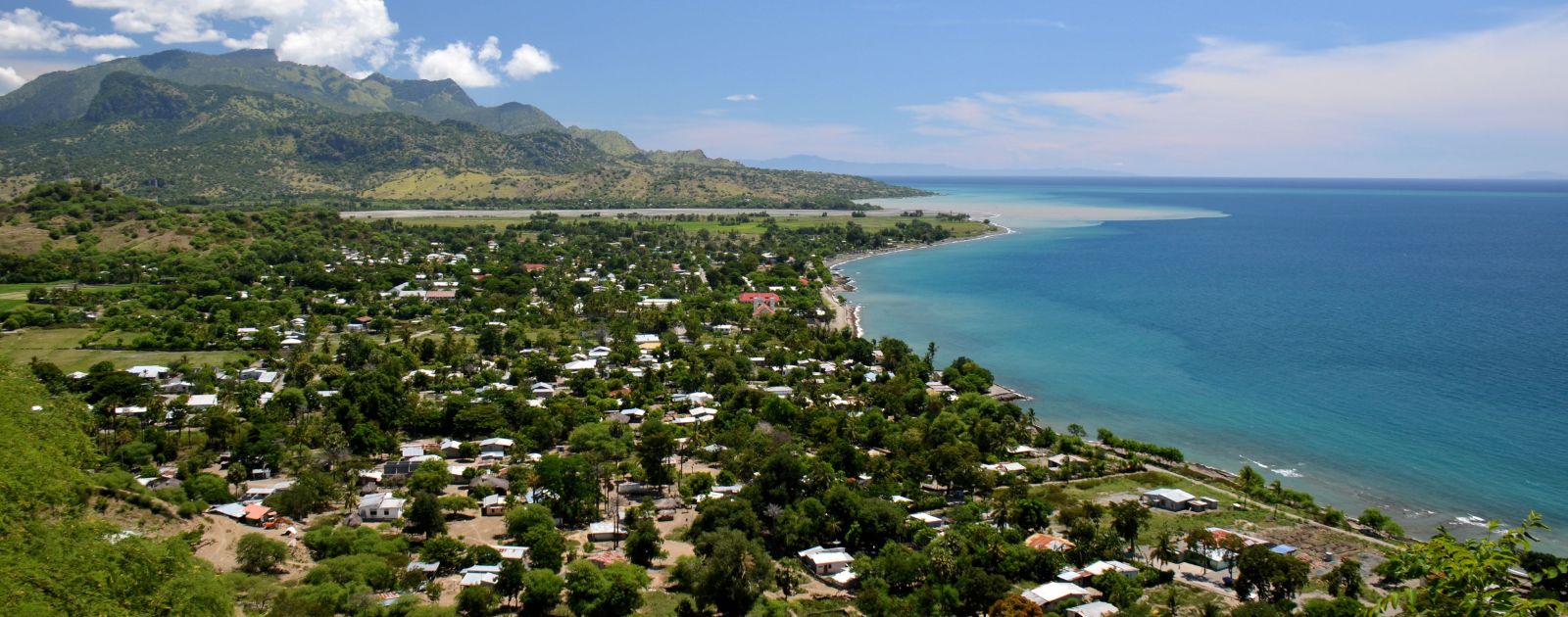Timor-Leste
As a least-developed country (LDC), Timor Leste is a beneficiary of the EU's "Everything but Arms" (EBA) arrangement. The World Bank classifies Timor Leste as a lower middle-income economy with a per-capita income of $1,343 in 2024. Total EU imports from Timor Leste amounted to about €2.9 million in 2024. About €60 thousand of those used the EBA preferences.
What is the EBA?
The EBA arrangement covers all LDCs as classified by the United Nations. This arrangement enables duty-free and quota-free access for all products originating in LDCs except for arms and ammunition. Unlike beneficiaries of the Standard GSP and GSP+, LDCs are not excluded from the scheme if they benefit from other preferential arrangements or agreements with the EU.

At a glance: EU preferential imports from EBA beneficiary countries (2024, € million)
1.4M (2024)
Population
Semi-Presidential Republic
Government
-2.2% (2024)
GDP Growth
2.1% (2024)
Inflation
$ 1.9B (2024)
GDP
Facts about Timor-Leste's economy
Island Economy
Timor-Leste is an island economy in southeast Asia and shares a border with Indonesia. The terrain is mainly mountainous with some plateaus in the northern part of the island. Given its geographic location, the country is vulnerable to earthquakes and tsunamis.
Export Products
Timor-Leste's main export articles are mineral fuels like petroleum oils, propane and butanes, coffee, vanilla and vegetable products as well as ferrous waste and scrap mainly from aluminium and steel.
Trade Partners
Timor-Leste's most important trading partners are Indonesia, China, Taiwan and Singapore, which together accounted for more than 60% of overall trade in 2024. Australia and Indonesia are the most important export markets (28% and 27% of the total, respectively), and most imports originate from Indonesia (33%) and China (12%).
Economic Structure
Offshore oil and gas resources are an important pillar of the economy and government revenues. Oil rents contribute around one third to the country's GDP. The great majority of the population is employed in the agricultural and services sector. Important agricultural products include corn, rice, cassava, sweet potatoes, coconuts, and coffee. The manufacturing sector focusses on textiles and garments, handicrafts, and the processing of coffee. Furthermore, marble quarrying is another source for foreign exchange.
Usage of EBA Preferences
About 7% of the EU's imports from Timor-Leste were eligible for EBA preferences in 2024 (most other imports are duty free under the EU's normal tariffs). For the first time in years, the country made use of its preferential access to the EU market, with a utilisation rate of almost 30%.
Trade with the EU
Total trade with the EU amounted to €39 million in 2024. With a share of less than 4% of total trade, the EU is Timor-Leste's 8th most important trading partner.
Timor-Leste and the EU
Imports from Timor-Leste by product section (2024, € million)
Imports from Timor-Leste over time (€ million)
TIMOR-LESTE AND THE EU GSP
Economic Impact
7%
Share of Timor-Leste's exports to the EU were eligible for EBA preferences in 2024.
29%
Timor-Leste did not make use of EBA preferences in 2024.
95%
Share of zero-duty imports from Timor-Leste in 2024. Most imports are duty-free under normal EU tariffs.
Preference utilisation and export diversification
EU imports from Timor-Leste (€ million)
Preference utilisation (%) vs. total eligible imports (in € million)
EU imports from Timor-Leste decreased strongly since 2016, and EBA-eligible imports are very small. Nevertheless, the country used the preferences in 2024 for the first time in years, for various product sections, even small-scale exports.
The largest product sections under EBA (€ million, 2024)
Because most exports face zero duties in the EU, Timor-Leste's preference-eligible exports to the EU are fairly limited, but in 2024 the country started using the preferences, most notably for exports of machinery.
SUSTAINABLE DEVELOPMENT
As a beneficiary of the EBA, Timor-Leste is not required to ratify any conventions to be able to benefit from preferential access to the EU market. Timor-Leste has ratified six out of the seven UN conventions on the protection of human rights and six out of the eight fundamental ILO labour rights conventions listed in the GSP Regulation. Additionally, Timor-Leste has ratified four out of the eight listed environmental protection conventions as well as two out of the four conventions on good governance.
Core international conventions on human rights and labour standards
Ratified
- International Convention on the Elimination of All Forms of Racial Discrimination (1969)
- International Covenant on Civil and Political Rights (1976)
- International Covenant on Economic Social and Cultural Rights (1976)
- Convention on the Elimination of All Forms of Discrimination Against Women (1981)
- Convention Against Torture and other Cruel, Inhuman or Degrading Treatment or Punishment (1987)
- Convention on the Rights of the Child (1990)
- Convention concerning Forced or Compulsory Labour, No 29 (1930)
- Convention concerning Freedom of Association and Protection of the Right to Organise, No 87 (1948)
- Convention concerning the Application of the Principles of the Right to Organise and to Bargain Collectively, No 98 (1949)
- Convention concerning Equal Remuneration of Men and Women Workers for Work of Equal Value, No 100 (1951)
- Convention concerning Discrimination in Respect of Employment and Occupation, No 111 (1958)
- Convention concerning the Prohibition and Immediate Action for the Elimination of the Worst Forms of Child Labour, No 182 (1999)
Not Ratified
- Convention on the Prevention and Punishment of the Crime of Genocide (1948)
- Convention concerning the Abolition of Forced Labour, No 105 (1957)
- Convention concerning Minimum Age for Admission to Employment, No 138 (1973)
Additional Conventions
- Montreal Protocol on Substances that Deplete the Ozone Layer (1987)
- Convention on Biological Diversity (1992)
- The United Nations Framework Convention on Climate Change (1992)
- United Nations Convention against Illicit Traffic in Narcotic Drugs and Psychotropic Substances (1988)
- United Nations Convention against Corruption (2004)
EU-Timor-Leste Bilateral Development Cooperation
DG INTPA
Access all info about EU-Timor Leste relations on the International Partnerships website.
